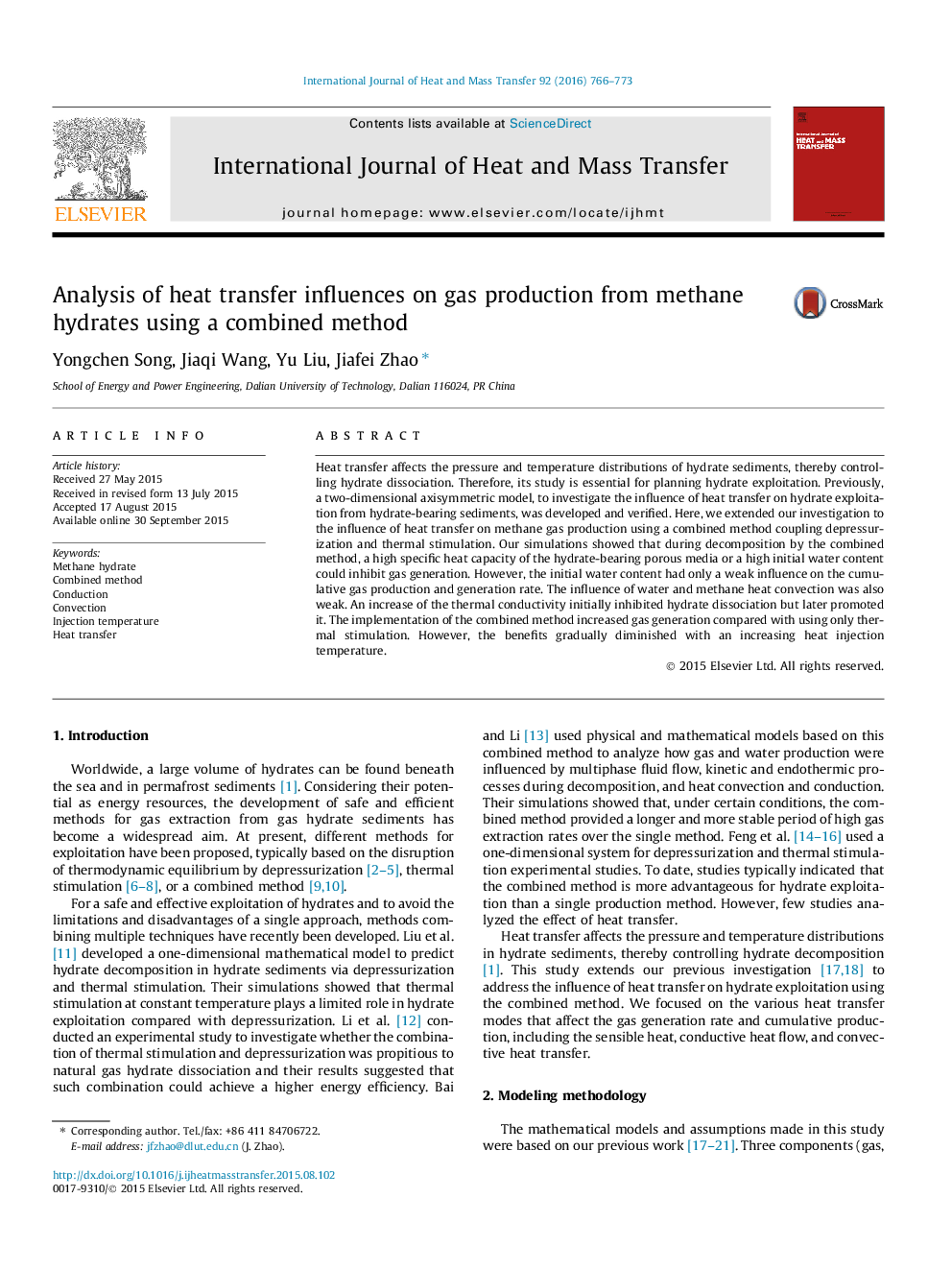| Article ID | Journal | Published Year | Pages | File Type |
|---|---|---|---|---|
| 656579 | International Journal of Heat and Mass Transfer | 2016 | 8 Pages |
•Increased specific heat capacity of methane hydrate media inhibits gas production.•Effect of the initial water content on gas exploitation is weak.•Higher sediment thermal conductivities first reduce dissociation but later promote it.•Effect of convection heat transfer on hydrate dissociation is weak.
Heat transfer affects the pressure and temperature distributions of hydrate sediments, thereby controlling hydrate dissociation. Therefore, its study is essential for planning hydrate exploitation. Previously, a two-dimensional axisymmetric model, to investigate the influence of heat transfer on hydrate exploitation from hydrate-bearing sediments, was developed and verified. Here, we extended our investigation to the influence of heat transfer on methane gas production using a combined method coupling depressurization and thermal stimulation. Our simulations showed that during decomposition by the combined method, a high specific heat capacity of the hydrate-bearing porous media or a high initial water content could inhibit gas generation. However, the initial water content had only a weak influence on the cumulative gas production and generation rate. The influence of water and methane heat convection was also weak. An increase of the thermal conductivity initially inhibited hydrate dissociation but later promoted it. The implementation of the combined method increased gas generation compared with using only thermal stimulation. However, the benefits gradually diminished with an increasing heat injection temperature.
